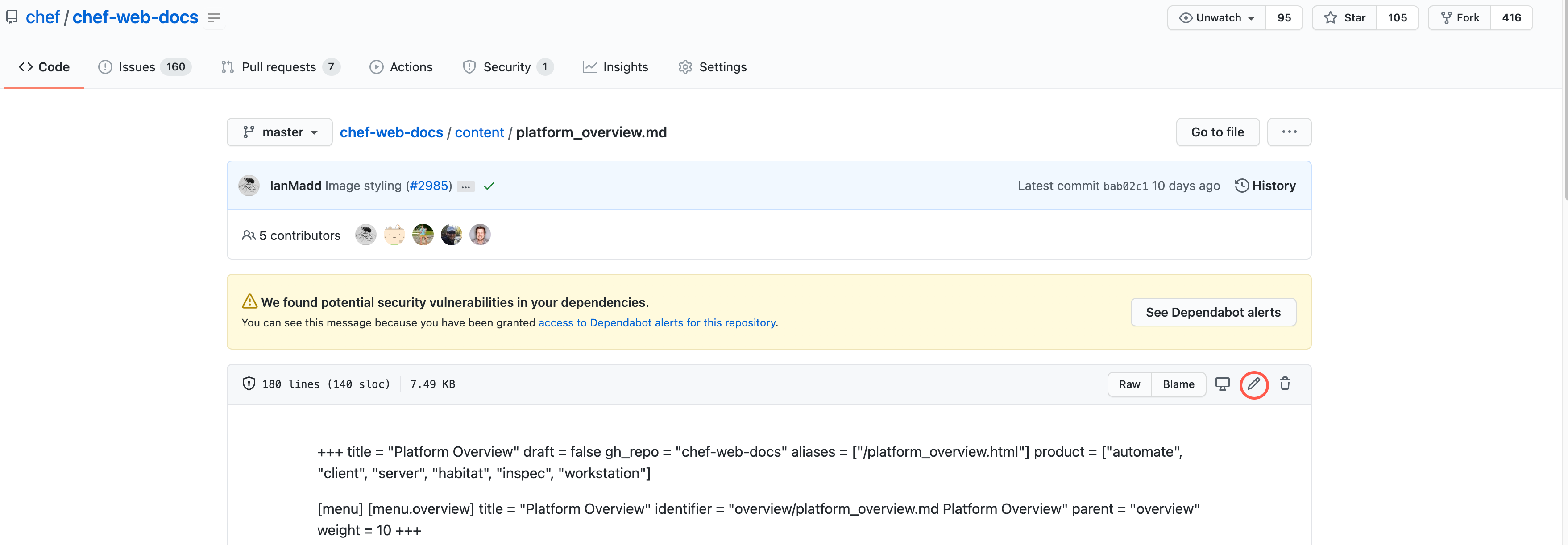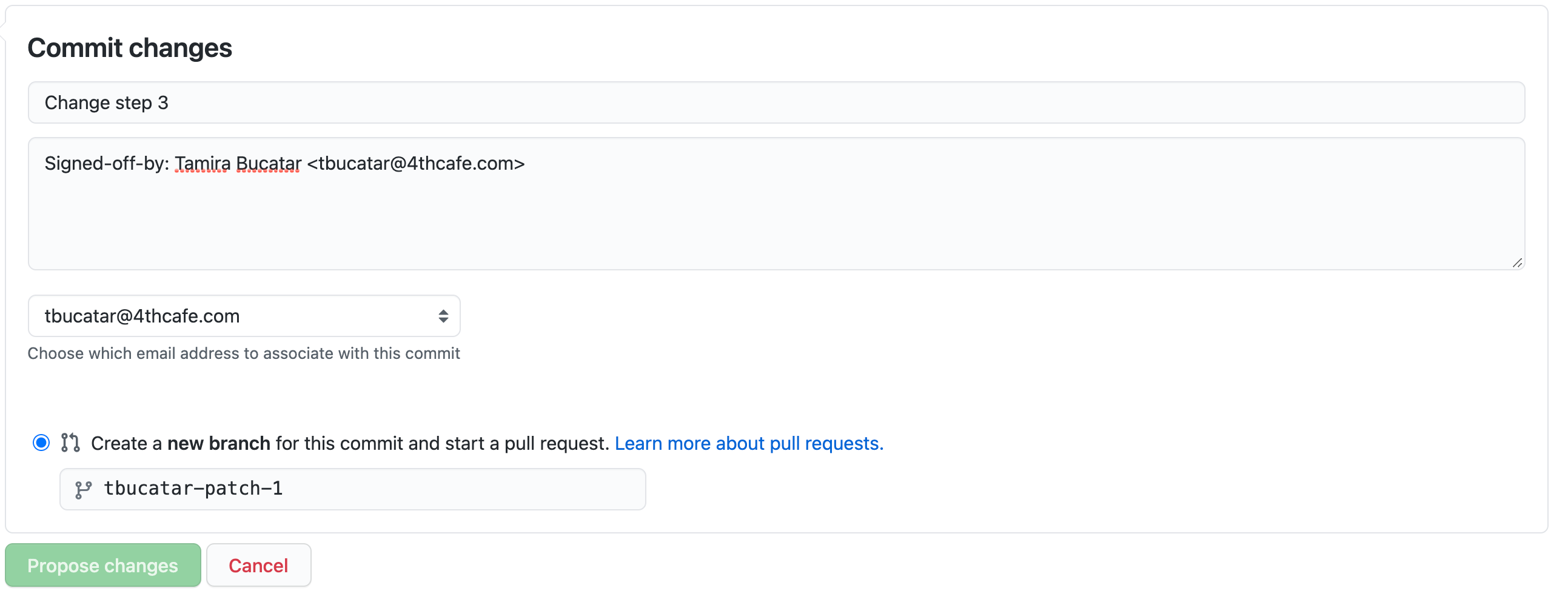Contribute to Chef's Documentation
This document describes how you can contribute to Chef’s documentation.
Documentation repositories
Our main repository for docs.chef.io is chef-web-docs. This repo contains the files for Chef Infra Client and the Hugo files for our site theme, templates, and shortcodes.
- The
chef-web-docsrepo contains acontentdirectory which holds most the Markdown files in the doc set. - The
static/imagesdirectory stores the image files used in the docs. - The
config.tomlandconfigdirectory tell Hugo how to build the navigation menus and contains other Hugo settings.
Repository locations
We try to keep our documentation source as close to the code as possible, which means that our documentation files are distributed across several product repositories.
Make a change in Chef’s documentation
Finding the right repository
The easiest way to find the location of the source file is to select the Edit on GitHub link at the bottom of every page.
Selecting Edit on GitHub opens the related documentation file in the correct repository.
Suggest a change
You can open a change PR directly in the browser by selecting the pen icon in the documentation file–but you will need to add your DCO directly in the commit message.
which is circled in red in this image.

DCO sign-off
Chef Software requires all contributors to include a Developer Certificate of Origin (DCO) sign-off with their pull request as long as the pull request doesn’t fall under the Obvious Fix rule. This attests that you have the right to submit the work that you are contributing in your pull request.
See this blog post to understand why Chef started using the DCO signoff.
For more information, review our full DCO signoff policy.
A proper DCO sign-off looks like:
Signed-off-by: Tamira Bucatar <tbucatar@example.com>
Your commit message should look something like:

Select propose changes and finish opening your PR.
You can add a DCO signoff to your pull request by adding it to the text of your commit message, or by using the -s or --signoff option when you make a commit.
Add a DCO to a pull request
If you forget to add a DCO sign-off before submitting a pull request, you can amend your commit from the command line with the Git CLI by entering git commit --amend --signoff. After that you’ll need to force push your commit to GitHub using the command git push -f.
Obvious fix–no DCO required
Small contributions, such as fixing spelling errors, where the content is small enough to not be considered intellectual property, can be submitted without signing the contribution for the DCO.
Changes that fall under our Obvious Fix policy include:
- Spelling / grammar fixes
- Typo correction, white space and formatting changes
- Comment clean up
- Bug fixes that change default return values or error codes stored in constants
- Adding logging messages or debugging output
- Changes to ‘metadata’ files like Gemfile, .gitignore, build scripts, etc.
To invoke the Obvious Fix rule, simply add Obvious Fix. to your commit message.
For more information, see our Obvious Fix policy.
Preview the build
We use Hugo to build and preview our documentation. See the chef-web-docs README for information on setting up Hugo and previewing documentation changes locally.
We also use Netlify to deploy our documentation and preview pull requests. Netlify generates a preview of https://docs.chef.io when a pull request is made that changes documentation content. Netlify automatically adds a link to the preview build in a pull request comment.
Deleting pages or making new pages
Contact the documentation team if you would like to suggest adding or removing pages.